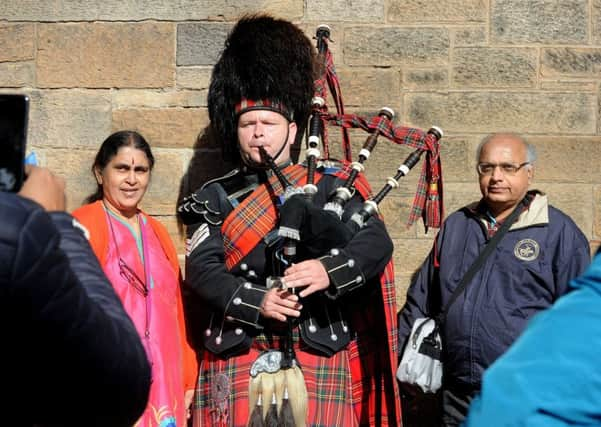Monica Lennon: Follow the tourist tax trail out of austerity


For anyone who has travelled – both in and outside Europe – it is highly likely they will have paid such a levy without even noticing. In Belgian tourist cities, such as Bruges and Antwerp, visitors are charged around £1.58 and £1.89 respectively for a night’s stay – less for a campsite.
Next door in Amsterdam, tourists are charged 5 per cent of the cost of their hotel stay – the Toeristenbelasting – while other cities in the Netherlands charge a flat rate. The Alpine states of Switzerland and Austria have a similar levy. And the practice is not exclusive to Europe – far-flung New Zealand will introduce a tourist tax next year.
Advertisement
Hide AdAdvertisement
Hide AdA tourist tax is, however, not the only feature that binds this seemingly eclectic mix of countries together. They are all countries identified in the SNP’s Sustainable Growth Commission as examples that Scotland should seek to match.
In fact, of the dozen countries cited by the SNP as the leading lights for Scotland to follow, half have introduced, are introducing or want to introduce a tourist tax.
Whilst looking to learn from other countries is a sensible approach, the SNP is in danger of drawing all the wrong conclusions, rendering its growth commission misleadingly titled as it would in fact continue austerity. A tourist tax, which could raise up to £70 million in Scotland, would help austerity-ravaged local councils maintain services for the benefit of visitors, residents and local businesses. SNP ministers have snubbed it, but rank and file members and councillors are showing support for Scottish Labour’s position.
The Cabinet Secretary for External Affairs, Fiona Hyslop, caused quite a stir when she jumped on to Twitter during an official trip to Japan, to admonish the SNP leader of Edinburgh City Council, Adam McVey; all because he wants the capital city to have the power to raise £15 million. And he’s not alone because council leaders unanimously agreed at Cosla that they want to have the option to raise revenue through a tourist tax.
Sticking with Edinburgh, it is undoubtedly wonderful that every year millions of people from all over the world want to visit the capital. It is persistently hailed as one of the most popular destinations in Europe. The Edinburgh International Festival and Fringe – a celebration of global culture – is testament to the city’s enduring attractiveness. The City of Edinburgh Council, however, like all Scottish local authorities, has faced persistent budget cuts due to the choices of the Scottish Government.
Across Scotland, local authorities have lost more than £1.5 billion since 2011.
It is local services, many of which are hugely important to tourism, such as leisure facilities and waste collection, that have borne the brunt of these cuts.
Labour will always argue for an end to this SNP austerity on a national level – but we will also fight for councils to be given the power to reverse them on a local level.
Advertisement
Hide AdAdvertisement
Hide AdTo deny local authorities the choice of whether to introduce a tourist tax further reinforces the SNP’s record as a centralising government. It is no friend of local government.
SNP ministers persistently say a tourist tax might harm the industry, but if that is the case, why do so many of the countries they want to model themselves on have one?
The reality is that SNP ministers are opposed to allowing councils the option of introducing a tourist tax for one reason only – because to do so would be to admit what Labour has said all along, that councils are being grossly underfunded and services are suffering.
Scottish Government ministers cannot be allowed to intimidate and silence council leaders and continue to ignore Cosla. Edinburgh council has now put its plans out to public consultation; it’s time that the SNP government engaged constructively because our capital city and our communities deserve better than ill-tempered ministerial tweets.
Monica Lennon MSP is Scottish Labour’s Communities spokesperson